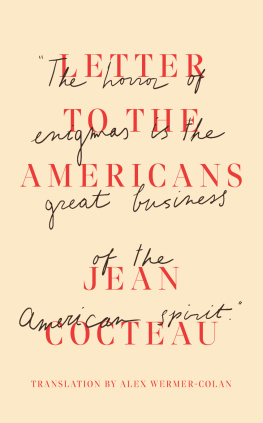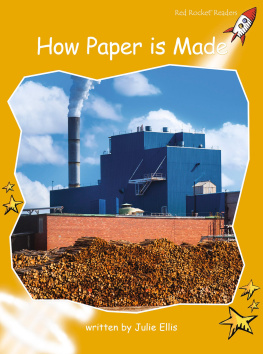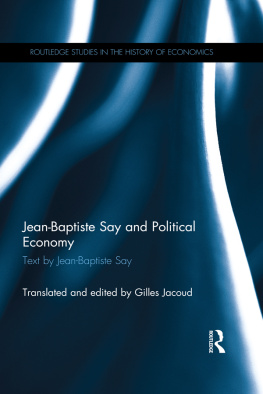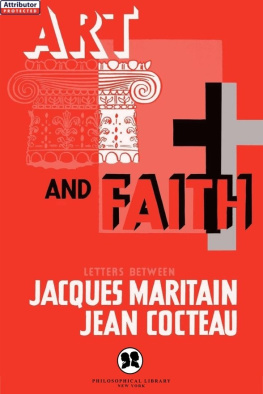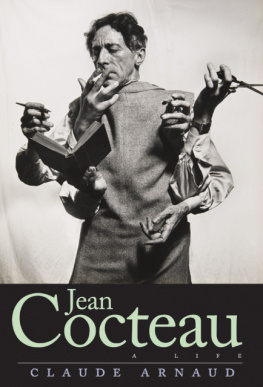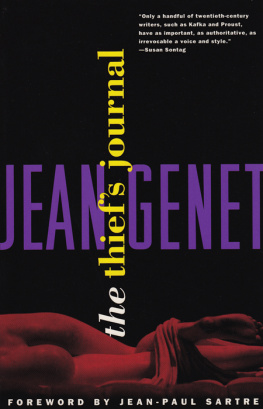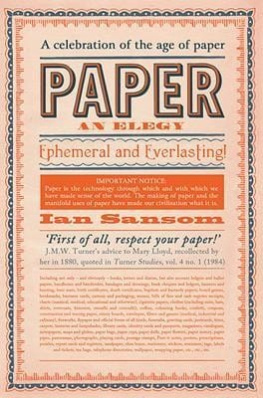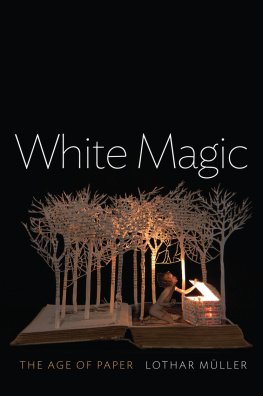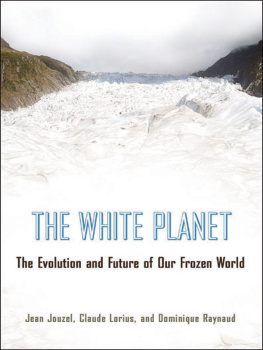Jean Cocteau - The White Paper
Here you can read online Jean Cocteau - The White Paper full text of the book (entire story) in english for free. Download pdf and epub, get meaning, cover and reviews about this ebook. year: 1958, publisher: Macaulay, genre: Detective and thriller. Description of the work, (preface) as well as reviews are available. Best literature library LitArk.com created for fans of good reading and offers a wide selection of genres:
Romance novel
Science fiction
Adventure
Detective
Science
History
Home and family
Prose
Art
Politics
Computer
Non-fiction
Religion
Business
Children
Humor
Choose a favorite category and find really read worthwhile books. Enjoy immersion in the world of imagination, feel the emotions of the characters or learn something new for yourself, make an fascinating discovery.

- Book:The White Paper
- Author:
- Publisher:Macaulay
- Genre:
- Year:1958
- Rating:3 / 5
- Favourites:Add to favourites
- Your mark:
- 60
- 1
- 2
- 3
- 4
- 5
The White Paper: summary, description and annotation
We offer to read an annotation, description, summary or preface (depends on what the author of the book "The White Paper" wrote himself). If you haven't found the necessary information about the book — write in the comments, we will try to find it.
The White Paper — read online for free the complete book (whole text) full work
Below is the text of the book, divided by pages. System saving the place of the last page read, allows you to conveniently read the book "The White Paper" online for free, without having to search again every time where you left off. Put a bookmark, and you can go to the page where you finished reading at any time.
Font size:
Interval:
Bookmark:
The
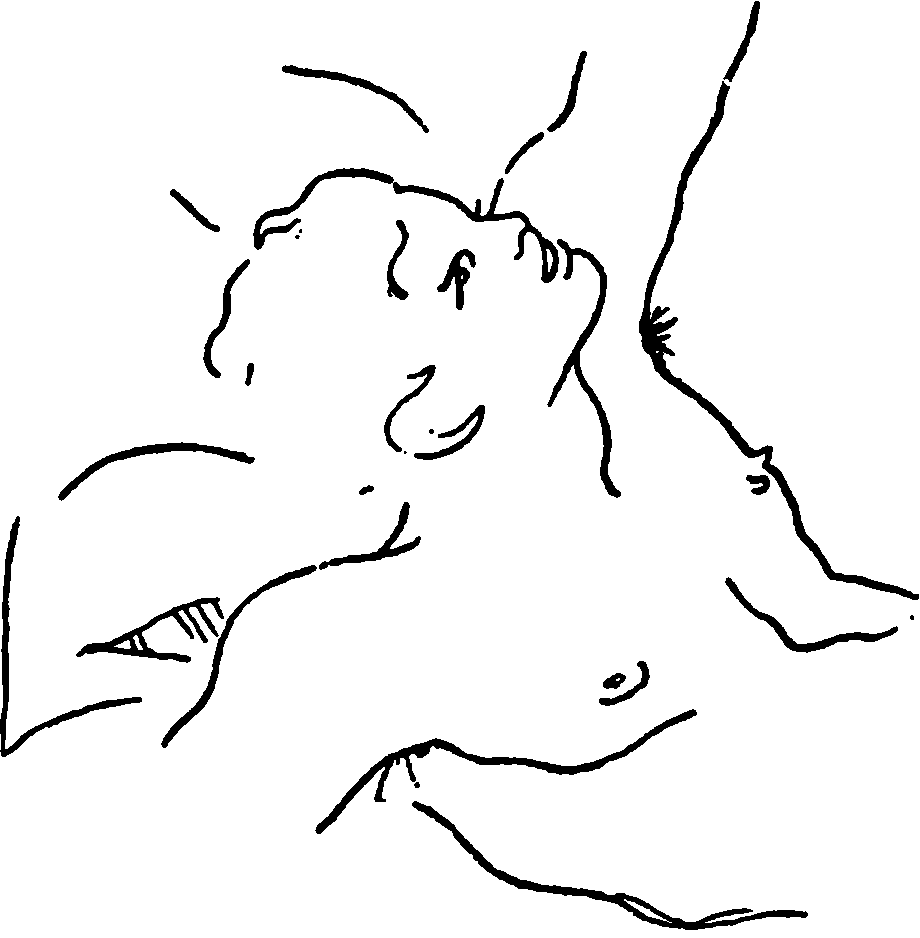
ANONYMOUS
WITH A PREFACE AND
ILLUSTRATIONS BY
JEAN COCTEAU
de l'Academie Francaise
THE MACAULAY COMPANY
NEW YORK
T he White Paper, whence does it come, who wrote it? Did I? Perhaps. Another? Probably. Do we not become others the moment after we've done writing? A posthumous book? That too is probable; are we not today yesterday's dead? Antehumous? The thought is not impossible . We have our ears glued to mothering wombs these days , eager to detect the first peep of the prenatal poem that will break the record in the child prodigy-class. Would The White Paper be autobiographical then? In which case I refuse its paternity, for what I find charming here is that the author talks without talking about himself.
Were I, now, to write an autobiographical book, it wouldn't be limited to describing what by common consent is called vice. It would abound in sexual commonplaces which as inked out by me would assume some singular delineations.
Too many and too limiting are the circumstances which, clearly, disqualify The White Paper from appearing under my signature. However, indeed as I were, and as I own, still tempted to lay my name thereto, as theft doth tempt our fingers unto the seizure of an object that the perilousness and the gratuity of the act gild glisteningly.
Am I jittery? I'm not the jittery sort. Ah, but is it opportune to don the bright weeds of youth's turpitudes in that temple where rectitude's air and an austere guise are meet? But let us rather smile upon these sumptuary scruples which more befit a dear old fool dreaming of the good old lawless days. We reject them; but, tell me now if we have not often dreamt of falling asleep, of writing while in sleep, and of waking on the morrow to find the work written and with no other thought than to have to attend to the job of correcting proofs?
A dream of this sort invites me to preface this famous White Paper , where the stylistic quality of the prose transcends the matter it treats.
Immortality and unseemly behavior are just about the only things people unhesitatingly allow us, generously disdaining to take security for the loan. But my affection for what is upright in a man and my repugnance for eccentricity, in a word, my fight with the angel of the strange obliges me to dread that which excites scandal, scandal always having had at me without cause. On the other hand, I highly approve of the theory, that love begets respect, and that respect paralyzes desire, and that the erotic achieves best expression if none but the senses are allowed entry into the picture, the heart being left outside it.
The heart is one thing. The sex is another. Certain objects overwhelm the one, certain objects arouse the other; without, in all this, the intelligence playing any part at all.
I will go further. I have frequently maintained that a moral sexuality governs our emotion when we are in the presence of works of art, and that we are as completely powerless to restrain this uplifting of the soul as we are to dominate that bodily erection provoked in us by certain animate forms. Therefore be not uneasy if you End it in you to attribute this book to me. I'd not be in the least bit ashamed of it. And I simply beg the unknown author's forgiveness for thus taking unfair and usurping advantage of his anonymity.
I have even, yes, in several preceding editions accompanied this text with drawings which are patent evidence of the fact that if I do not specialize in a taste for my own sex, I do nevertheless recognize therein one of the sly helping hands fond nature is wont to extend to humans.
Ni vu ni connu, je t'embrouille. In whatever the appearance it adopts, all hail to His Most Holy Majesty, Genius. And, furthermore, as Poincare said, it may be that my modesty halts where yours begins.
Jean Cocteau
The White Paper
A s long ago as I can remember, and even looking all the way back to that age when the senses have still to come under the influence of the mind, I find traces of the love I have always had for boys.
I have always loved the stronger sex, the one I consider it legitimate to call the fairer sex. The misfortunes I have had at the hands of a society which views the unusual as the fit object of condemnation and obliges us, if they be rare, to rectify our inclinations.
I recall three critical, three decisive incidents. My father lived in a little chateau near S***. Attached to that chateau was a park. At the further limit of the park, beyond where the chateau property stopped, were a farm and a watering-place. In return for some daily milk and butter and eggs, my father enabled the farmer to avoid the cost of fencing his animals off our land.
One August morning, I was prowling about the park with a toy rifle that fired caps and, playing at hunting, using a hedge for a blind, I was waiting for some animal to pass, when from my hiding-place I spied a young farm-boy leading a draft horse down to water. Wishing to ride out into the pond and knowing that people never ventured to the far end of the park, he peeled off his clothes, sprang upon the horse and guided it into the water a few yards from where, concealed, I was watching. The sunburn on his face, on his neck, his arms, his feet, contrasting with the whiteness of the rest of his skin made me think of chestnuts splitting out of their husks: but those were not the only dark patches on his body. My gaze was drawn to another, from out of whose midst an enigma and every one of its details rose into the plainest view.
My ears rang. The blood rushed to my head, my face turned scarlet. The strength drained out of my legs. My heart beat like the heart of a murderer preparing to kill. Without realizing what was happening, I stood up, reeled, and fainted dead away, and it was only after a four-hour search that they found me. When I'd recovered my wits and was on my feet again, I took instinctive care not to disclose what had caused my weakness and taking the risk of sounding ridiculous, I declared that I'd been frightened by a hare that had bolted from a thicket.
The second time it was the following year. My father had given some gypsies permission to camp in that same remote spot in the park where I had lost consciousness. I was taking a walk with my maid. All of a sudden, letting out a great shriek, she grabbed my hand and began to drag me after her, ordering me under no circumstances to look back. The weather was sparkling clear and hot.
Two young gypsy lads had undressed and were climbing in a tree. A spectacle rendered unforgettable by my maid's shock and as though permanently framed by my disobedience: even if I live to be a hundred, thanks to that shriek and that mad dash I shall always see a covered wagon, a woman rocking a new-born infant, a smoking fire, a white horse grazing and, climbing a tree, two bronzed bodies each thrice-spotted with patches of black.
The third time it had to do with a young hired man whose name, if I'm not mistaken, was Gustave, who waited on the table. Aware of my glances, it would be all he could do to keep a straight face while serving. From returning again and again to dwell upon those memories of the farm-boy and of the gypsies, I'd come to have the keenest wish to touch my hand to what my eye had seen.
My scheme was wonderfully naive. I'd make a drawing of a woman, I'd take the picture and show it to Gustave, I'd make him laugh, once I'd encouraged him I'd ask him to let me touch the mystery which, seated at the dining table, I'd been trying to visualize behind the suggestive bulge in his trousers. Now, the only woman I had ever seen wearing a slip was my maid; I supposed that artists invented the firm breasts they put on women, and that in reality all women had flabby ones. My sketch was realistic. Gustave burst out laughing, asked who my model was; taking advantage of a new fit of mirth, with breathtaking courage I had proceeded halfway to the mark when he turned very red, batted my hand aside, pinched my ear, by way of excuse saying he was ticklish and, deathly afraid of losing his job, conducted me to the door.
Next pageFont size:
Interval:
Bookmark:
Similar books «The White Paper»
Look at similar books to The White Paper. We have selected literature similar in name and meaning in the hope of providing readers with more options to find new, interesting, not yet read works.
Discussion, reviews of the book The White Paper and just readers' own opinions. Leave your comments, write what you think about the work, its meaning or the main characters. Specify what exactly you liked and what you didn't like, and why you think so.

